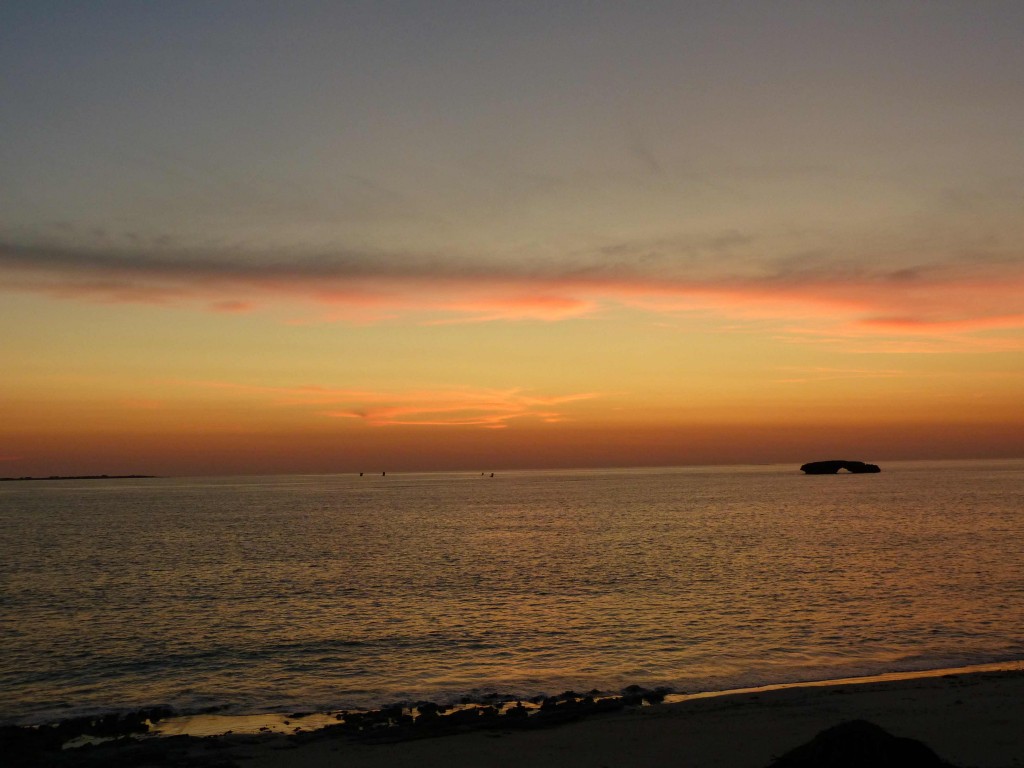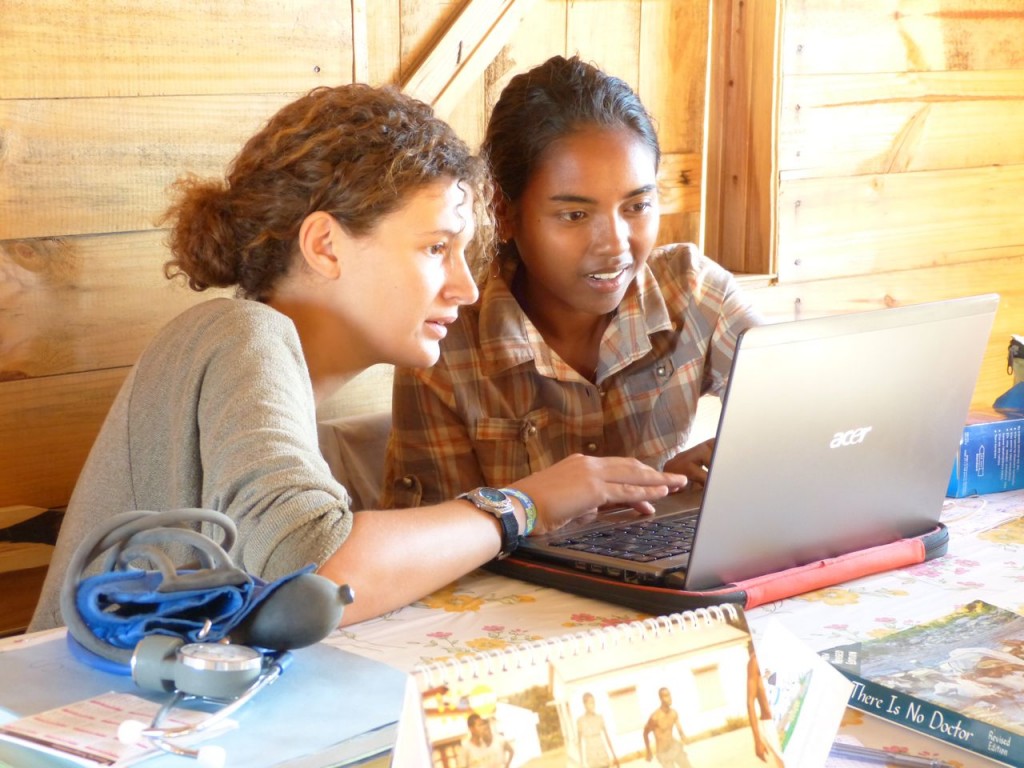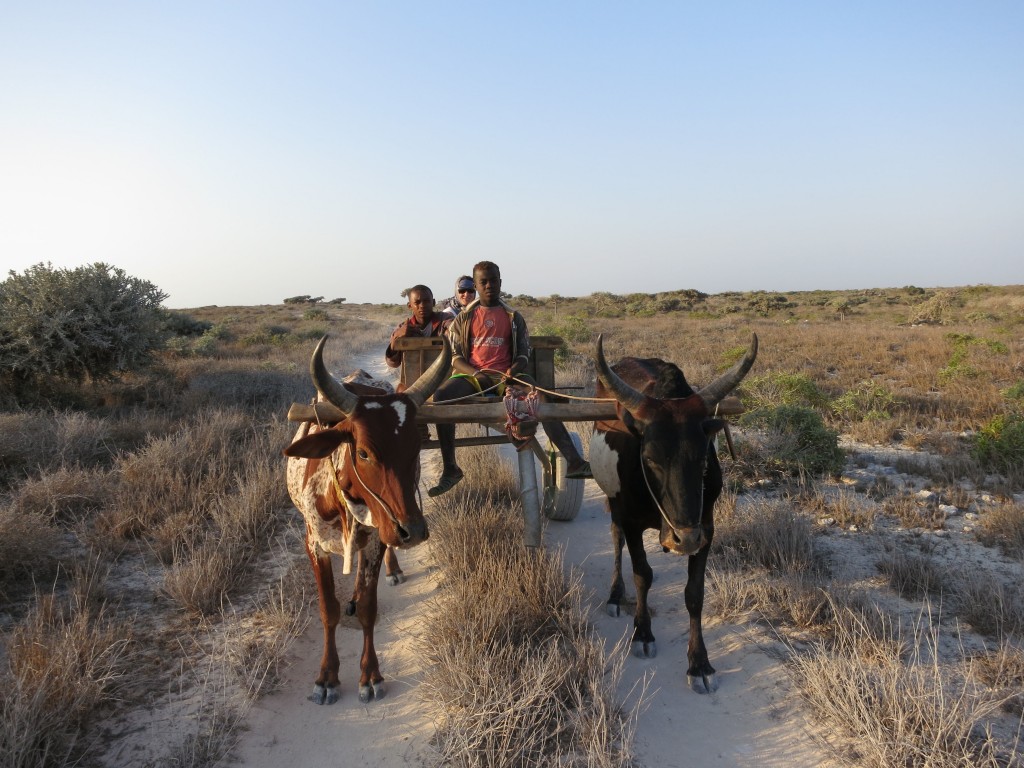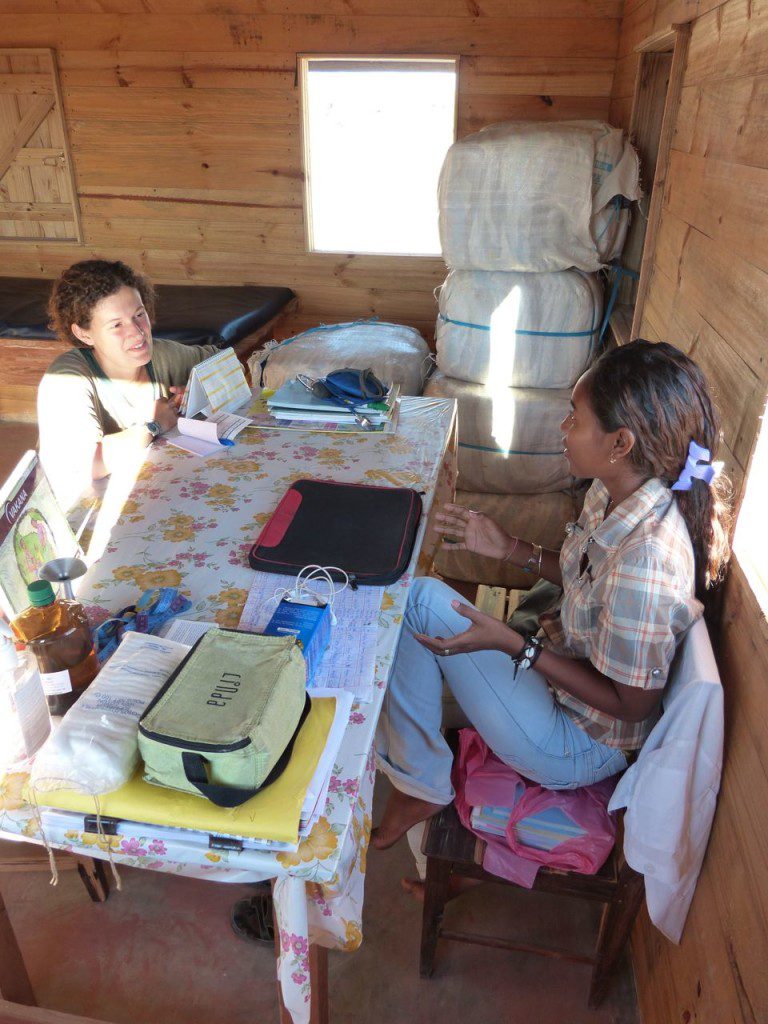By Lousie Collingwood, medical elective student, Exeter, United Kingdom
Madagascar is an incredible country, full of endemic wildlife and fringed by beautiful coral reefs. However, this wasn’t the only reason I decided to travel there for my medical elective… Blue Ventures is a very interesting organisation as it approaches marine conservation in a way that I hadn’t previously encountered: the team is fully integrated within the local communities, and as well as helping to protect the environment, they also support these communities to develop sustainable livelihoods. Most significantly, they are one of only a few conservation organisations that incorporate health and rights-based family planning into their work, as part of their integrated Population-Health-Environment (PHE) approach.
Their community health programme is called Safidy, meaning “freedom to choose”, because it aims to empower couples to make their own reproductive health choices. I had been fundraising for Safidy for a number of years and wanted to see all of this great work for myself. Blue Ventures had been thinking about re-opening their medical elective programme for a while and were looking for someone to trial it again, so this was the perfect time for me to visit.
Travelling to Andavadoaka was a mission! It took almost a day to fly to Madagascar’s capital city of Antananarivo from the UK, and that was the easy part. I then had to fly down to Toliara, the regional capital, followed by an eight-hour 4×4 journey to Andavadoaka. This journey was along a loosely-termed dirt “road” that was pretty bumpy but picturesque. Once I arrived, I was blown away by the stunning coastline and beautiful sunsets. The welcome I got from all the staff made me feel at home straight away.

Luckily, I was able to timetable my medical elective so that I could attend the annual Blue Ventures conference. This was a fascinating four days where I got to learn about all of the organisation’s different programmes and how they fit together, and hear about the lessons that the various teams across Madagascar had learned over the past year. Their enthusiasm was infectious, and I couldn’t help but feel overwhelmed yet keen to get more involved.

Working with Laura, the Safidy midwife, on clinic data entry
Clinic work in Andavadoaka, as well as on the village outreach tour, formed the main bulk of my learning. I got to see the work being done by the community-based distributors (CBDs) of contraceptives, and developed my skills in obstetric examination, intramuscular injection and blood pressure measurement. Witnessing the difficulties faced in terms of travel, communications and poverty were eye-opening and will stick with me for the rest of my life.

A lot of time was also spent helping the community health team to develop the programme, for example, their educational activities. This allowed me to share my ideas and give feedback. It also enabled me to gain a clearer understanding of the difficulties that an NGO can experience when trying to run a health programme in this context, as well as learning about how to provide healthcare in a cost-effective and locally sensitive way. An example of the sorts of challenges faced by the Safidy team is given below…
HIV/AIDS touches Andavadoaka
While I was on my medical elective placement, a case of HIV was diagnosed in the village of Andavadoaka: a young woman who had been having sex for money for several years. She had recently given birth to a baby, after which her condition deteriorated. She presented to a local hospital and the diagnosis of HIV was made, and she was then transferred to the regional city of Toliara for confirmation of the diagnosis and treatment. To the Safidy team’s knowledge, this is the first confirmed case of HIV in the village.
As well as being devastating news for this girl, the case raises important issues for the community. Is the family aware of her diagnosis? What is the HIV status of the baby? Is anyone else in the village HIV+? Does this news have any implications for the way sexual and reproductive health issues are tackled within the community?
It is difficult to know what Blue Ventures’ role is in situations like this. The following options were discussed by the Safidy team:
– Organising a postnatal visit by a community health worker to meet with the girl, offer support, assess her understanding of HIV, encourage her to tell her previous sexual partners, and discuss the risks of unprotected sex
– Exploring partner notification services, possibly through Marie Stopes Madagascar
– Strengthening behaviour change efforts to encourage community members to use condoms and get tested for HIV
– Strengthening education efforts to counter stigma around HIV/AIDS
This experience raised a lot of questions for me and I don’t think there are any easy answers. However, confidentiality and respecting the rights of the woman and baby, as well as acknowledging our broader duty of care to the community, are key. Keeping within the boundaries of what the organisation can and should undertake is also important, but in order to improve the sexual and reproductive health of the communities they serve, the Safidy team will be taking this new and alarming piece of information into account.

Discussing local health issues with Laura, the Safidy midwife, in the Safidy centre in Andavadoaka
Our fundraising team of medical students based in Exeter, in the southwest of England, have been working hard to provide some funding to replicate Safidy’s work in Belo sur Mer. The opportunity arose for me to spend some time there and I jumped at the chance! There was a ten-hour journey sailing into northerly winds, but it was more than worth it when I arrived. The village was beautiful and I got to see what a nascent community health programme looked like. I was amazed at how much work had been done so far, and excited to find out the plans for the coming few months.
In summary, my experience of being a medical elective within the Safidy programme and more widely within the Blue Ventures team was incredible! It allowed me to learn a huge amount about working in resource-poor settings and has shaped my career choices. I would highly recommend this to anyone, and I’m delighted to have played my part in opening this up to other medical students interested in such opportunities.
Please click here for more information about Blue Ventures’ medical elective programme.

